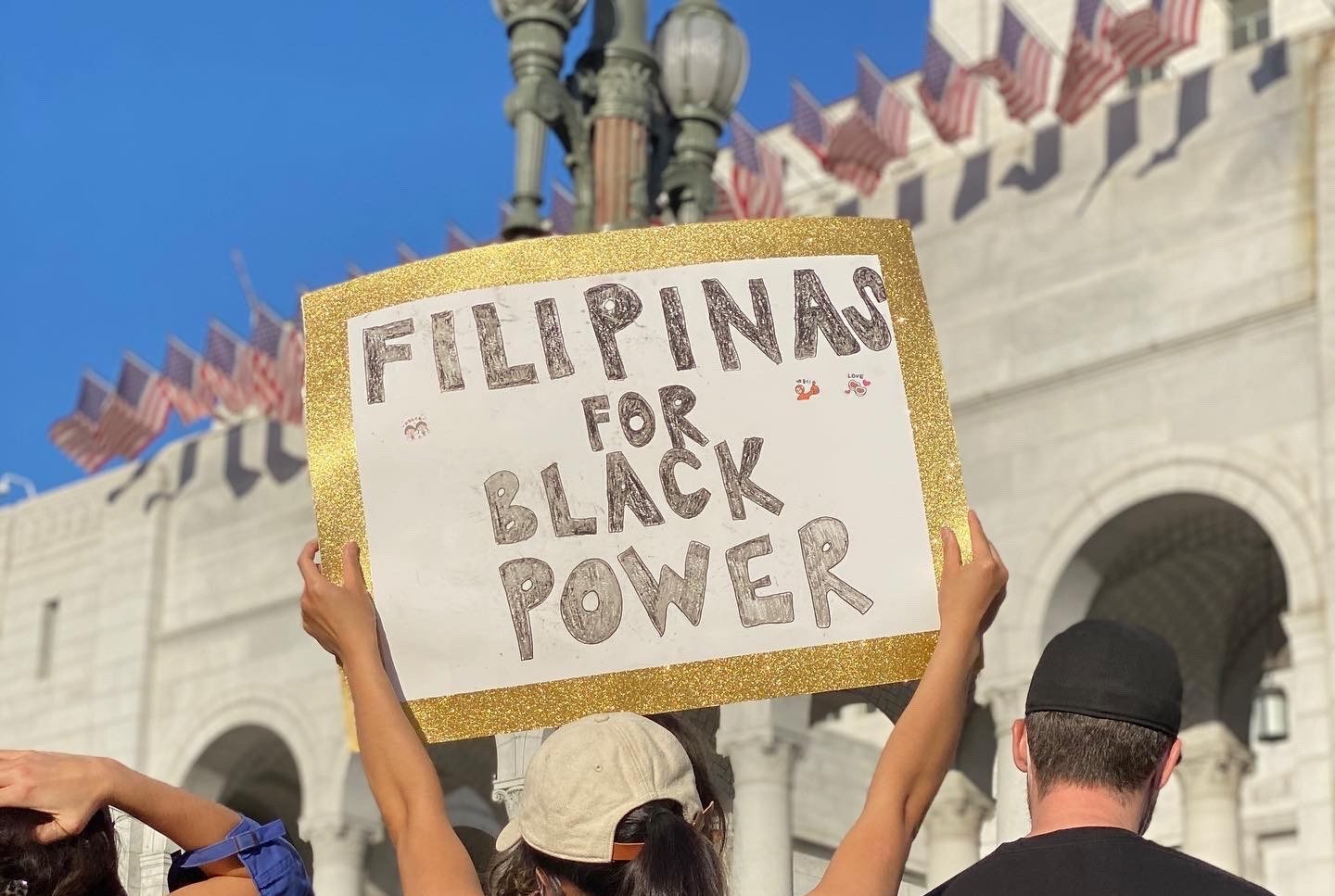“BLACKOUT TUESDAY” was an initiative to post a black picture on social media, reflect on recent events, and stand in solidarity with the Black Lives Matter movement by sharing information about the cause.
Last Tuesday, June 2, my children posted a black picture on social media and posted unequivocal demand for the demand for equity and justice for African Americans in the United States, following the death of George Floyd, a victim of America’s systemic racial injustice.
My daughter Katrina told us she would be joining the rally in San Francisco on Wednesday, June 3, along with other youth. They could not sit in the sidelines anymore.
As I followed my children’s lead, I posted a black picture on my Facebook page with the hashtags: #BlackOutTuesday, #BlackLivesMatter, #AllLivesMatter, #EndRacism, #EndPoliceBrutality, #EndApathy, #EndComplicity, #VoteOutPeopleWhoFosterRacism, #VoteOutTrump

Katrina talked to me and thanked me for helping give a voice to the movement. However, she requested respectfully if I could delete the hashtag #AllLivesMatter, because I thought that is important and is a given.
My daughter explained: “Because when someone says all lives matter, it implies that the injustice is being directed upon ALL lives, when in fact — the lives that are being threatened by police brutality are Black lives.”
“Of course all lives matter but it fails to emphasize that the people who urgently need support the most right now are Black lives,” she added.
This is the very reason written by Asian American Jeff Yang in an opinion article entitled “Will Asian-Americans get behind Black Lives Matter?” published by CNN online on July 14, 2016. (Yang is a columnist for The Wall Street Journal and a frequent contributor to radio shows including Public Radio International’s “The Takeaway” and WNYC’s “The Brian Lehrer Show.”)
He wrote: “One of those conversations was one I had with my own parents, who have always had sympathy, but not always empathy, with black Americans. I shared with them the letter and told them of its origins and about the hashtag #BlackLivesMatter, which preceded it. My mother’s response initially led me to worry that it hadn’t had an impact.”Why say ‘Black Lives Matter’?” she said. “All lives matter.”
“I began to explain to her the problem with the term “all lives matter,” that the phrase erased the urgency of the crisis being faced by the black community in particular.”
The piece written by Yang is an eye-opener for us Filipinos in America. I will expound more on this later.
“Black Lives Matter” started to be a rallying cry, a cause and a movement in response to the acquittal of Trayvon Martin’s murderer, George Zimmerman. Then came other high-profile cases over the years, including Alton Sterling and Philando Castile, both gunned down by police officers.
Fast forward to May 25, 2020. Asian American Larry Lin wrote the piece, “Asian American Complicity in Racism.” (Lin born and raised in San Jose, CA, and he serves as a pastor at The Village Church Hampden in Baltimore, MD. He has a BS from Cornell University and a MDiv from Southern Baptist Theological Seminary.)
Lin wrote: “While the white officer was pinning down Floyd’s neck with his knee, an Asian officer was standing by in silence, and even at times preventing protestors from intervening.
“To me, it was the perfect representation of Asian American complicity in racism.
“I acknowledge that there have been Asian Americans throughout history who have fought alongside their African American neighbors against racism. However, they have been far outnumbered by Asian Americans who have chosen to be ignorant at best or complicit at worst in their racism.”
Filipinos in America, why should we care? Why should we make a strong stand to demand equity and justice for black Americans? Why should we not stay in the security of being in the sidelines?
Let us go back to the piece written by Jeff Yang. Let this excerpt haunt us to think deeply and conscientiously:
“The truth is that as the U.S. population is poised to become majority nonwhite, the Asian-American community has arrived at a fork in the road.
“Do we continue to ignore the ambient fear and disregard for blackness around us, or do we acknowledge that it is part of what we have assimilated — a structural element in American culture?
“Do we acknowledge the ways in which we were the beneficiaries of black Americans’ historical exploitation and incredible sacrifice, or do we ignore that the root of America’s prosperity is its original sin, and that the rights all people of color now enjoy were won through the struggle to end slavery and the institutionalized oppression of black Americans that followed?
“Do we pursue the privileges that have long been associated with being a part of the dominant minority in this country, or do we aspire to a future in which no group can hoard social, legal and economic advantage, alongside a black community that has led the way in that fight for generations, against the greatest of odds and with the direst of losses?
“Do we continue to stand aside, ignoring the injustices black Americans face, thinking that it’s “not our problem,” or do we stand against these senseless, horrific killings, recognizing that when it becomes our problem, it is too late? Ten-thousand Asians marched for Peter Liang, demanding the same miscarriage of justice that has let other killer cops go unpunished. What if those 10,000 Asians had marched with black protesters instead, demanding equity under law for them, not exception for us?”
MGA KABABAYAN, how do we respond to the calling for justice in our time?
* * *
Gel Santos Relos has been in news, talk, public service and educational broadcasting since 1989 with ABS-CBN and is now serving the Filipino audience using different platforms, including digital broadcasting, and print, and is working on a new public service program for the community. You may contact her through email at [email protected], or send her a message via Facebook at Facebook.com/Gel.Santos.Relos.





